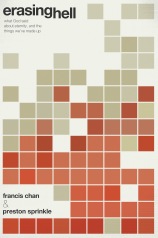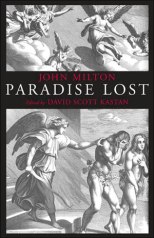This post is the follow up to Universalism Pt 1: A Survey of Universalism. To remind everyone, Universalism is not specifically “Christian” in nature. Many people do not believe in Hell or believe in suffering as a means to paradise or even annihilation so for that reason remember that the term Universalist in this post is regarding the Christian heresy of dogmatic Universalism. To read more on this and what Jesus and his disciples believed and taught about Hell, read chapters 3 and 4 in Francis Chan’s Erasing Hell.
Original Class Date: 31 March 2013
Concepts of Hell
Before we begin, write down what exactly you would say you believe about Hell.
Nobody likes to talk about Hell these days. And the truth is this is nothing new. In regards to Christian theology the idea of universal salvation has not had a very strong following until a relatively short time ago. The first person to try and popularize this theory was the early Church leader Origen. He believed that Hell was, simply put, a place where the souls of man go to be purified of sin before they are saved.
Origen’s theory didn’t gain a lot of support and he was labeled a heretic for teaching this belief which sounds harsh, but truly it’s understandable why the Church denied this teaching. No where in the Bible is Hell described as a place of purification, but we’ll touch on this later. Furthermore, for there to need to be a purification for sin to be endured by an individual Jesus’ sacrifice on the cross would not have been necessary. Christ died once for the salvation of all who trust and walk with Him, which is why he said from the cross, “It is finished” (John 19:30)
Through the centuries, others have offered more artistic views of Hell which, interestingly enough, some have wrongly believed to be biblical. One example is the poet Dante. In The Inferno the author depicts Hell as a multilevel dominion under the earth. Each level, or circle, has a greater degree of suffering than the last based on the sins committed. I enjoyed The Inferno, but it is a literary work. To my knowledge, Dante never intended to shape anyone’s doctrine, but to show the sufferings of unsaved sinners.
Another such poet was John Milton who’s work Paradise Lost has impacted people’s doctrine of Hell in a deeper and probably more subtle way. In Paradise Lost Milton shows Hell, not as a pit of suffering, but as a demonic kingdom ruled by Satan (the fallen angel Lucifer), Mammon (the demon god of the love of money), and Beelzebub (the prince of demons). They rule over their kingdom from a capitol, Pandemonium (literally translated All Demon Place). Now consider what you believe about Hell, and answer honestly if you believe that Hell is where the Devil rules and people suffer.
Here’s the theological problem with Milton’s story-turned-doctrine: Jesus rules over Hell. Jesus holds the keys to death and Hades, and Jesus is the Judge on the white throne who will judge the living and the dead with all authority to welcome into the Kingdom of God or reject. Furthermore, Hell was not created for humanity. When we were created by God, he said that we were, “Very good” and there was no sin to condemn us, but through sin we have condemned ourselves. Hell was created as a punishment for Satan and his demons who rebelled against God, and by our own volition we rebel against God with them.
The more modern, Western, view of Hell seems to be the notion that we are undergoing our versions of “Hell on Earth” and that after this we will have paid our price and get to be in paradise. We’ll come back to this later, but before I get on a soap box about sound doctrine, let’s look at what Jesus believed about Hell.
What Did Jesus Believe?

In agreement with Pastor Chan I believe that before we dive into the Word of what Jesus said about Hell, we need to develop an understanding of what Jesus would have believed during his time on the earth. Why? Because many heretics argue that Jesus didn’t actually mean what he said, or that he spoke in a way that insinuated something other than what a literal interpretation would suggest. Chan keenly points out that logically if Jesus did not hold to the common cultural beliefs of 1st century Judaism regarding Hell that he would have had to go out of his way to preach something different. It’s kind of like that scene form Transformers: Revenge of the Fallen when Sam has a vision from the shard and tries to teach his professor and fellow students about how “Einstein was wrong”. He started rambling off all of this information without first laying a foundation of understanding so everyone thought he was crazy.
Here are the facts;
- Jesus was a Jew
- He lived in the Roman province of Judea
- He lived during the 1st century.
- He was a renowned Rabbi, or teacher of the Scriptures, among the people and the priests.
- He had an unusually large following.
- He knew the Scriptures very well (we see this played out during his temptation in the wilderness, his teaching in Nazareth, and his frequent references to the Tanakh, or the Old Testament).
- He spoke with authority on spiritual matters and had clear, logical wisdom.
- He spoke about Hell more frequently than anyone else in the Bible
That being said, for Jesus to be a reputable Rabbi among the Jewish religious establishment, he would have had to be in line with Scripture and to some extent the traditions that the people were accustomed to. Furthermore, Jesus openly rebukes false teachers. We see this in almost every encounter he has with the scribes and the Pharisees.
First Century Jewish Tradition Regarding Hell
For more information regarding this matter, check out chapter 2 of Erasing Hell. Chan attempts to bring the reader into an understanding of the culture by removing our Western mindsets and the presuppositions we have about the Bible in general and Jesus in particular. While I believe that the Bible is sufficient for what we need to know about Hell, I do think that using outside sources from time to time can be useful for understanding a cultural or historical context, and supporting our work as apologists. Much of this information comes from Erasing Hell and the extra-biblical texts he’s using are the apocryphal book of Esdras (also referred to as 4 Ezra or The Jewish Apocalypse of Ezra), and various rabbinic teachings (from the Talmud, I think). This, among the other apocryphal and pseudepigrapha writings, can be useful but should not be elevated to the level of Scripture.
According to Esdras Hell is:
- A place of punishment after Judgment
- A place of destruction and never-ending punishment
- Described in imagery of fire and darkness, where people lament
The doctrine of Hell progresses throughout Scripture. What this means is that God reveals more about Hell to us over time, just as he did the Messiah. For Jews in the 1st century, much like today, Daniel was an important book of prophecy. One passage that is important in understanding the Jewish mindset would be Daniel 12:2.
“Regarding the end and the resurrection of the dead, ‘And many of those who sleep in the dust of the earth shall awake, some to everlasting life and some to everlasting contempt.” -Daniel 12:2
As a typical Jew in that time Hell would have been seen as something to come after the final Judgement as a punishment. Another 1st century Jewish writer described Hell as Gehenna, a place of fire and torments, where the wicked wander about in torments, ever grieving and sad because they cannot now make a good repentance that they may live (2 Esdras/4 Ezra 7:38, 80, 20 para.).
In 21st century America many do not distinguish between punishment and discipline. The two terms more or less mean the same thing when it comes to wrong behavior, however there is a very big difference that we need to understand: Discipline is remedial in nature and Punishment is to enact retribution for a crime or wrongdoing.
The Garbage Dump Theory
I’m sure that many of you have heard what I like to refer to as the garbage dump theory. I was introduced to this by Rob Bell in Love Wins (note: it may have been one of the Nooma videos… I really cannot remember) when he explains that Gehenna was the name of the landfill outside of Jerusalem where they would burn away the trash and wild beasts would feed on the trash and the dead bodies that were thrown in to be consumed.
However, according to Chan’s research the first reference to Gehenna as a garbage dump was from a Medieval Rabbi named David Kimhi in 1200 AD (keep in mind that Jesus was crucified around 30 AD). If it were an actual garbage dump it would have probably been the Himnom Valley where, generations before, child sacrifices were offered to the pagan demon gods Molech and Baal (2 Kings 16:3, 21:6, Ezekiel 16:20-21).
Regardless of your thoughts on this, the imagery remains the same, and Jesus used Gehenna to describe one of the ways humanity will live out the rest of it’s existence after death.
- “21 “You have heard that it was said to those of old, ‘You shall not murder; and whoever murders will be liable to judgment.’22 But I say to you that everyone who is angry with his brother will be liable to judgment; whoever insults his brother will be liable to the council; and whoever says, ‘You fool!’ will be liable to the hell of fire.” -Matthew 5:21-22
- “29 If your right eye causes you to sin, tear it out and throw it away. For it is better that you lose one of your members than that your whole body be thrown into hell.” -Matthew 5:29
- “28 And do not fear those who kill the body but cannot kill the soul. Rather fear him who can destroy both soul and body in hell.” -Matthew 10:28
- “9 And if your eye causes you to sin, tear it out and throw it away. It is better for you to enter life with one eye than with two eyes to be thrown into the hell of fire.” -Matthew 18:9
- “15 Woe to you, scribes and Pharisees, hypocrites! For you travel across sea and land to make a single proselyte, and when he becomes a proselyte, you make him twice as much a child of hell as yourselves.” -Matthew 23:15
What Did Jesus Say?
While Jesus talks about Hell in all of the gospels, I am referring only to the Gospel of Matthew for this post for two reasons. First, it would take a very long time to cover every entry and much of what is said in Matthew is repeated elsewhere. Second, each of the Gospels were written in a slightly different style because they were written to a particular audience. For instance, Luke addresses Jesus’ earthly ministry in a much more analytic/historical way because Luke was a doctor and historian commissioned to recount the life and ministry of Jesus. Likewise, Matthew was written as a gospel to the Jews, who would already have an understanding of the prophecies and the Scriptures. Including the above verses that I’ve already listed, the Gospel of Matthew records Jesus teaching in regards to Hell on at least 12 occasions.
- 31 “When the Son of Man comes in his glory, and all the angels with him, then he will sit on his glorious throne. 32 Before himwill be gathered all the nations, and he will separate people one from another as a shepherd separates the sheep from the goats. 33 And he will place the sheep on his right, but the goats on the left. 34 Then the King will say to those on his right, ‘Come, you who are blessed by my Father, inherit the kingdomprepared for you from the foundation of the world. 35 For I was hungry and you gave me food, I was thirsty and you gave me drink, I was a stranger and you welcomed me, 36 I was naked and you clothed me, I was sick and you visited me, I was in prison and you came to me.’ 37 Then the righteous will answer him, saying, ‘Lord, when did we see you hungry and feed you, or thirsty and give you drink? 38 And when did we see you a stranger and welcome you, or naked and clothe you? 39 And when did we see you sick or in prison and visit you?’ 40 And the King will answer them, ‘Truly, I say to you, as you did it to one of the least of these my brothers,[a] you did it to me.’41 “Then he will say to those on his left, ‘Depart from me, youcursed, into the eternal fire prepared for the devil and his angels. 42 For I was hungry and you gave me no food, I was thirsty and you gave me no drink, 43 I was a stranger and you did not welcome me, naked and you did not clothe me, sick and in prison and you did not visit me.’ 44 Then they also will answer, saying, ‘Lord, when did we see you hungry or thirsty or a stranger or naked or sick or in prison, and did not minister to you?’ 45 Then he will answer them, saying, ‘Truly, I say to you, as you did not do it to one of the least of these, you did not do it to me.’ 46 And these will go away into eternal punishment, but the righteous into eternal life.” -Matthew 25:31-46
-
33 You serpents, you brood of vipers, how are you to escape being sentenced to hell? -Matthew 23:33
- 30 Let both grow together until the harvest, and at harvest time I will tell the reapers, Gather the weeds first and bind them in bundles to be burned, but gather the wheat into my barn.’… 36 Then he left the crowds and went into the house. And his disciples came to him, saying, “Explain to us the parable of the weeds of the field.” 37 He answered, “The one who sows the good seed is the Son of Man. 38 The field is the world, and the good seed is the sons of the kingdom. The weeds are the sons of the evil one, 39 and the enemy who sowed them is the devil.The harvest is the end of the age, and the reapers are angels.40 Just as the weeds are gathered and burned with fire, so will it be at the end of the age. 41 The Son of Man will send his angels, and they will gather out of his kingdom all causes of sin and all law-breakers, 42 and throw them into the fiery furnace. In that place there will be weeping and gnashing of teeth.43 Then the righteous will shine like the sun in the kingdom of their Father. He who has ears, let him hear.” -Matthew 13:30, 36-43
- 11 I tell you, many will come from east and west and recline at table with Abraham, Isaac, and Jacob in the kingdom of heaven,12 while the sons of the kingdom will be thrown into the outer darkness. In that place there will be weeping and gnashing of teeth.” -Matthew 8:11-12
- 13 Then the king said to the attendants, ‘Bind him hand and foot and cast him into the outer darkness. In that place there will be weeping and gnashing of teeth.’ -Matthew 22:13
- 30 And cast the worthless servant into the outer darkness. In that place there will be weeping and gnashing of teeth.’ -Matthew 25:30
Duration of Hell?
Some, like Origen, believe that Hell is a place of cleansing. Therefore, the wicked will suffer in Hell to pay the price of their sin, and others will argue that it may be the fire and darkness that are everlasting, not the punishment. In the parable of the goats and the sheep, Jesus said that the goats would be condemned to everlasting punishment. Chan goes into more depth regarding the Greek text and what this term everlasting means as it was used in Scripture, but that’s a topic for another time.
A Question to Consider
How does your view of Hell match up to Jesus’ view? Seriously think about this question. It’s easy to hear it and blow it off or think about it in progressive terms, but if you’re a Christian Jesus is your Lord God; that means that if you disagree with Him, you’re the one who’s wrong and needs to repent, which is something that I had to do.
A Final Thought
Too many Christians don’t know how to talk about Hell. They either avoid the subject all together and pretend it doesn’t exist for anyone other than rapists, child molesters, and Hitler or the over emphasize it to either condemn everyone around them or to scare them into accepting Jesus as their savior. Instead of preaching fire and brimstone or pretending like everything will be fine, tell the truth. This means reading the Scriptures and believing what they say, then taking that with you.
Fair warning: If you do this, you WILL be criticized. Get used to it. No one wants to hear that they’re going to Hell, because no one wants to be told they’re wrong. As I’ve said before, we’re not trying to offend them but our ultimate goal is not to offend HIM. Don’t be like the Ephesian’s in Revelation who had sound doctrine but did not have love. Many people we know and care for are, at present, going to Hell and that is a terrible and sobering thought. Our goal should be that when we are asked or are prompted by the leading of the Holy Spirit we would share truthfully what Jesus says about Hell and those who don’t believe so that we can share the truth and allow them to work it out with Jesus.
10 Points to anyone who actually finished this long post!




Leave a comment